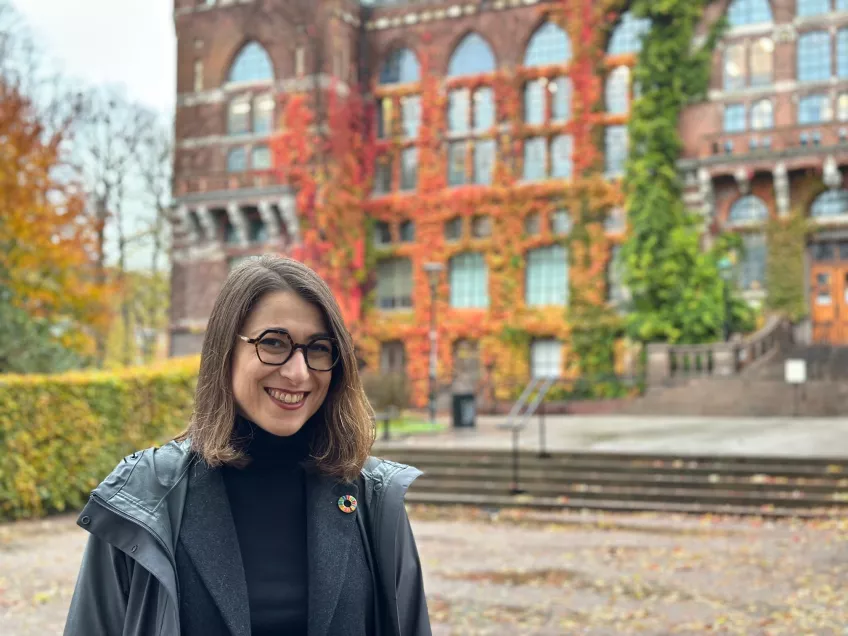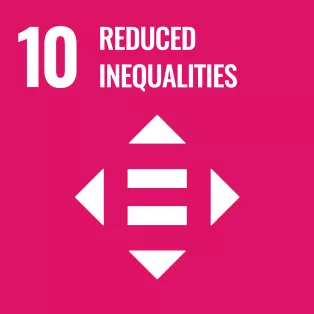"The rights of migrants are closely linked to their economic contribution to the EU market"
Alezini Loxa researched sustainability in EU migration law
Agenda 2030 PhD student Alezini Loxa researched sustainability in EU migration law. Her study revealed a legal system with very specific characteristics where the rights of migrants are closely linked to their economic contribution to the EU market.
How would you briefly describe the aim of your thesis?
“My thesis examined sustainability in EU migration law. Starting from the fuzzy term ‘sustainable migration’, I conducted a legal-historical study of different areas of EU migration law. Eventually, the thesis showed that balancing economic and social considerations, currently reflected in the concept of sustainability, has shaped EU migration law as a legal system. It has very specific characteristics, where migrants’ rights are closely linked to their economic contribution to the EU market”.
What are the main conclusions?
“The main conclusion of my research was that what sustainable migration captures is already part of the EU’s DNA. The way we move around as EU migrants, our freedom to choose where we work and our extensive rights in all EU member states is a paradigmatic example of sustainable migration. Pursuing sustainable migration for non-EU migrants requires that they also enjoy freedom to move and social rights across the EU. Unfortunately, the attribution of such rights does not necessarily extend to the protection of vulnerable migrants. After all vulnerable migrants from both EU and non-EU countries who have no economic activity are excluded from the protection of EU law. However, it is necessary that all the migrants who contribute to the EU economies with their work are equally protected. This is the only way to guarantee socially sustainable societies”.
Were you surprised by the results, and if so, in what way?
“When I started the research, there was a lot of hope that sustainable migration could lead the way forward and challenge the structures of border violence embedded in EU law over the last decade, to say the least. As the research progressed, it became clear that terms like ‘sustainable migration’ are shaped by political discourses and institutional practices. In this sense, the pursuit of sustainable migration policies has very specific limits. The term may sound agreeable, and it may indeed unite different actors. Still, it does not impose legal obligations that could make migration management in the EU more humane”.
What would you like to do in the future?
“I have very much enjoyed the past years as a researcher and would like to continue my academic engagement. I believe that sustainability is an important terrain for further research as it is linked to various social areas, which are still under-researched. Therefore, I would like to continue to engage with questions of law, its framing of social matters and its relation to sustainable societies.”
Why did you apply to the 2030 Agenda Graduate School?
“I applied to the 2030 Agenda Graduate School because it looked like -and indeed was- a unique opportunity to engage in cutting-edge research with broader impact. The Graduate School has created a valuable space for research engagement and visibility, providing us with unique skills in interdisciplinary communication.”
How did it help you become more interdisciplinary or sustainability-focused?
“Compared to other Agenda 2030 colleagues whose work I find inspiring and admire, my research has followed traditional legal methods and materials. However, the Agenda has been crucial in framing my research around broader questions of sustainability and its relationship to justice. ”
What did you enjoy most about the Graduate School?
“I enjoyed engaging with such a diverse and inspiring cohort of researchers. Research is usually characterised by a lot of solitude. Nevertheless, I was lucky enough to be surrounded by colleagues from so many different disciplines, national backgrounds and life approaches, all with their individual struggles. This gave me a different perspective on research and life and ensured that there always was a support network for me.”
Alezini Loxa successfully defended her doctoral thesis at the Faculty of Law on the 5th of October 2023.

